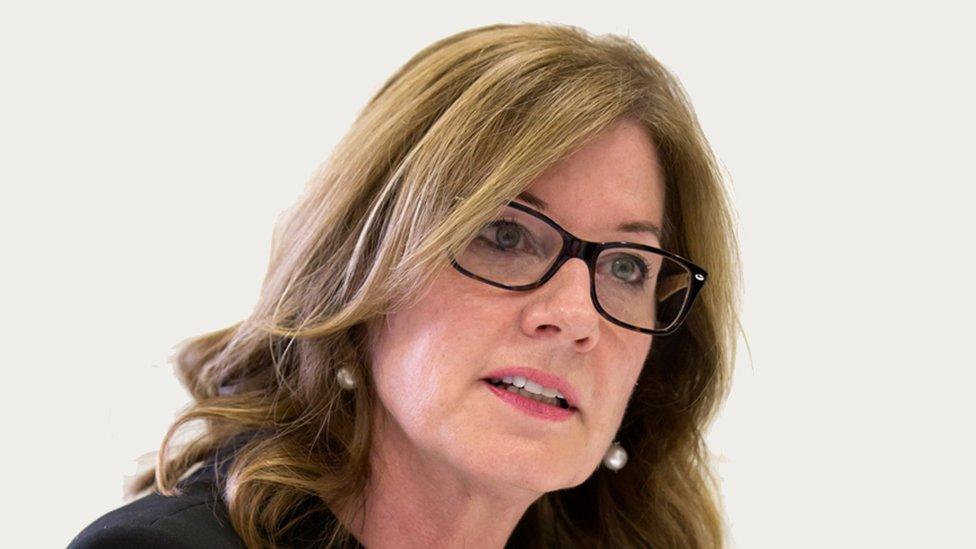Your place in the data ecosystem
- Published
Data expert, Ravi Naik, warns that one click is all it takes to share your personal data across an ecosystem of companies.
Let me take you back to that glorious, sorry, awful moment when you woke up this morning, bleary-eyed and with that constant jet-lag feeling that is the hallmark of so much adult life. What was the first thing you did?
Did you, like me, lean over to the side of your bed, stop your alarm, enter the passcode for your smartphone, click on the little icon for a social media app, and find yourself inanely scrolling through your feed to see what people you have never met have to say about something you don't care about?
You do realise, don't you, that in doing that, you were pointing a super-computer at your face, and encouraging algorithms to in effect scan your personality, building up a sophisticated, nuanced, and detailed profile of you, readily shared with countless people and companies you've never heard of, which in turn will determine which adverts you see when you wake up a week from now. Or sooner.
Perhaps after that, and making the kids' breakfast, you decided to bid for four minutes of freedom while getting changed, and asked the smart-speaker in your bedroom or kitchen to play a great bit of music. Let's be generous and assume you have great taste in music, so you played Loving Pauper by Dillinger., external
And then maybe, after you left the house, sorted the kids out at school, and made your merry way to work, you got a tenner out from the ATM, and touched in and out on the bus/tram/train you use to get to work.
And all the while, you were checking your smartphone, for the latest updates from someone you've never met about something you don't care about. Or - let's be generous again - maybe it was updates from someone you do know, about something you don't care about.
'Biggest transfer of power'
By the time you got to your desk at work today, even more bleary-eyed and exhausted, your pupils freshly blasted with searing beams of blue-white light, what have you achieved? Getting the kids to school alive and fed was great, sure; and maybe you've read what your favourite hack had to say about the latest departure from Strictly.
I tell you what else you've achieved though. You've made a few, probably Californian, companies that bit richer. These are the richest companies in human history, so they didn't need your help, but still...
You've also successfully given your consent - or have you? - to a vast plethora of interminable Terms & Conditions. Each of the companies whose service you've used has different Terms & Conditions. You signed up to the lot.
And be honest, have you read the Terms & Conditions of Google, Facebook, Twitter, YouTube, or Instagram? Do you dare to? Do you care?
I have, so you don't have to. Together, they are a chronicle of the biggest transfer of power from individuals to corporations in human history. This has happened exceptionally fast (in about two decades) very recently, and probably without your giving it much thought.
But you should.
In a crucial decision due early next year, the UK's Information Commissioner will decide whether the presumed consent that these companies trumpet as the moral fulfilment of their business model is, in fact, unfair. And the Commissioner's Office (ICO) has already said it has deep concerns about whether individuals are indeed fully aware of what they are signing up to.

The Information Commissioner, Elizabeth Denham, is reviewing how personal data is used in real time bidding in programmatic advertising.
This is about ad tech - the technology behind modern advertising platforms on social media. Tech giants such as Facebook have hired teams and teams and teams of very clever and expensive lawyers to make their case - which is a sure sign of their concern.
It is important to note that Facebook in particular, and especially under Nick Clegg's reign in their policy unit, have said they agree there needs to be better regulation, and have called for it since long before the former Lib Dem leader got into his Californian hot-tub., external
Still, the stakes here are huge. If the ICO decides that the presumed consent to Terms & Conditions for all these companies is a hollow idea, that could have a profound impact on their business models. They are, after all, fundamentally a very modern extension of the 20th century advertising industry, able to map our behaviour and sell predictions about our interests to those with a message to sell - whether personal, political or commercial.
If you undermine the moral or legal integrity of ad tech, as currently constituted, you undermine the very basis of big tech, in this country at least.
Ravi Naik, a data lawyer who worked on the Cambridge Analytica case, believes that citizens and consumers are not really providing fully informed consent when they use these services, and that the ICO's imminent adjudication is a huge moment for the tech sector.
It may at least prompt us to have a more mature conversation about the data-soaked world in which we live.
Generational divide
I have written on this page about why it's important to understand that data is not the new oil, and radical policies may be required to address the fact that, in a world where the share of wealth going to workers is falling, and data giants employ relatively few people while legally avoiding vast sums of tax, we are witnessing an unprecedented asymmetry of knowledge and power.
But it begins with an informed public - which, by the way, is where journalism comes in. Citizens everywhere should be much less naive about the trails of data they leave behind them every day. Hardly a passing thought to most of us - but gold dust to the data giants.
The tech companies have an intellectually plausible - even reasonable, they would argue - defence. In return for free services, they build profiles of you which advertisers can use. They are more transparent than they have historically been: you can see the Terms & Conditions if you like.
And there is a generational divide here: millennials and a younger cohort may be relaxed about sharing their most intimate details online; those who grew up in the Cold War, less so. If the latter don't like social media, nobody is forcing them to use it.
Alas for the Californian billionaires (they tend to be Californian, and billionaires) who run these operations, my sense is that Britain's data regulator does not accept this argument. Elizabeth Denham - for that is her name - has a big call to make on the future of ad tech.
Together with Margrethe Vestager, the European Commissioner who has hit Google with heavy fines for anti-competitive behaviour, and Elizabeth Warren, the Democrats' presidential hopeful in the US who wants to break up Big Tech, Denham, a Canadian, is at the forefront of attempts to re-balance power in the 21st century.
Her decision is due in January. The whole world will be watching.
If you're interested in issues such as these, you can follow me on Twitter, external or Facebook, external; and subscribe to The Media Show podcast from BBC Radio 4.
